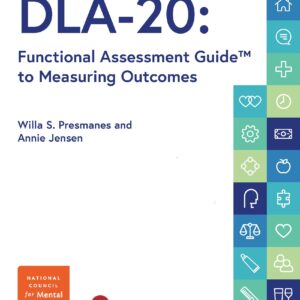Description
Meeting the Mental Health and Substance Use Needs of Veterans Returning From Operation Iraqi Freedom and Operation Enduring Freedom and Their Families
The U.S. military’s current mental health and addictions providers system, offered through the U.S. Department of Defense and the U.S. Department of Veterans Affairs, addresses many but not all of the mental and substance use health needs of veterans and their families.
Soon more veterans may be able to receive counseling from community-based organizations. On October 10, President Bush signed “The Veterans Mental Health and Other Care Improvements Act of 2008” into law. The new law directs the VA to contract with community-based healthcare organization to provide mental health services in rural areas in which access to VA services is inadequate. This law will make it possible for more veterans to access mental health and addictions services in their communities.
What do community behavioral health providers need to know to effectively serve veterans returning from Operation Iraqi Freedom and Operation Enduring Freedom and their families? What does cultural competency mean with respect to those who have served in the military and their families? What are the unique characteristics of the conflicts in Iraq and Afghanistan that should inform treatment? What lessons can be learned from behavioral healthcare providers who already specialize in treating these veterans and family members?
This book motivates and equip community mental health and addiction service providers to proactively reach out to Iraq and Afghanistan veterans and their families. It describes the unique characteristics of the wars in Iraq and Afghanistan and the resulting physical, mental, economic, and social effects on veterans and their families. The book presents detailed case studies of community behavioral healthcare providers and associations with special expertise in and commitment to serving veterans of Iraq and Afghanistan and their families. Program descriptions explain the innovative and collaborative aspects of their services and summarize their combined wisdom and guidance in “lessons learned.”





